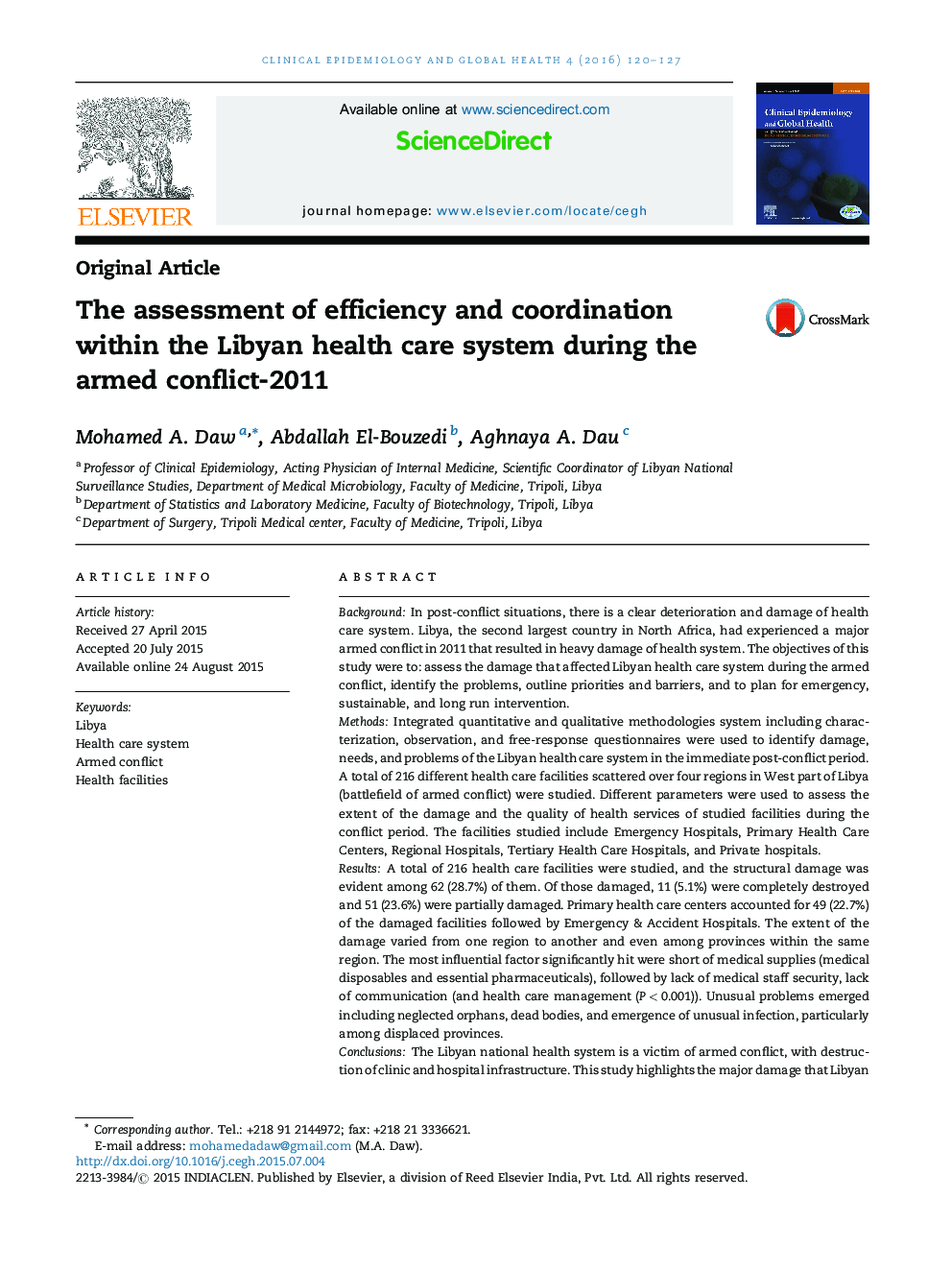| Article ID | Journal | Published Year | Pages | File Type |
|---|---|---|---|---|
| 3396217 | Clinical Epidemiology and Global Health | 2016 | 8 Pages |
BackgroundIn post-conflict situations, there is a clear deterioration and damage of health care system. Libya, the second largest country in North Africa, had experienced a major armed conflict in 2011 that resulted in heavy damage of health system. The objectives of this study were to: assess the damage that affected Libyan health care system during the armed conflict, identify the problems, outline priorities and barriers, and to plan for emergency, sustainable, and long run intervention.MethodsIntegrated quantitative and qualitative methodologies system including characterization, observation, and free-response questionnaires were used to identify damage, needs, and problems of the Libyan health care system in the immediate post-conflict period. A total of 216 different health care facilities scattered over four regions in West part of Libya (battlefield of armed conflict) were studied. Different parameters were used to assess the extent of the damage and the quality of health services of studied facilities during the conflict period. The facilities studied include Emergency Hospitals, Primary Health Care Centers, Regional Hospitals, Tertiary Health Care Hospitals, and Private hospitals.ResultsA total of 216 health care facilities were studied, and the structural damage was evident among 62 (28.7%) of them. Of those damaged, 11 (5.1%) were completely destroyed and 51 (23.6%) were partially damaged. Primary health care centers accounted for 49 (22.7%) of the damaged facilities followed by Emergency & Accident Hospitals. The extent of the damage varied from one region to another and even among provinces within the same region. The most influential factor significantly hit were short of medical supplies (medical disposables and essential pharmaceuticals), followed by lack of medical staff security, lack of communication (and health care management (P < 0.001)). Unusual problems emerged including neglected orphans, dead bodies, and emergence of unusual infection, particularly among displaced provinces.ConclusionsThe Libyan national health system is a victim of armed conflict, with destruction of clinic and hospital infrastructure. This study highlights the major damage that Libyan health care system has experienced and identified the important needs for a successful development and future planning. National and international efforts should be combined to restructure the Libyan health system and long run sustainable strategies have to be implemented.
